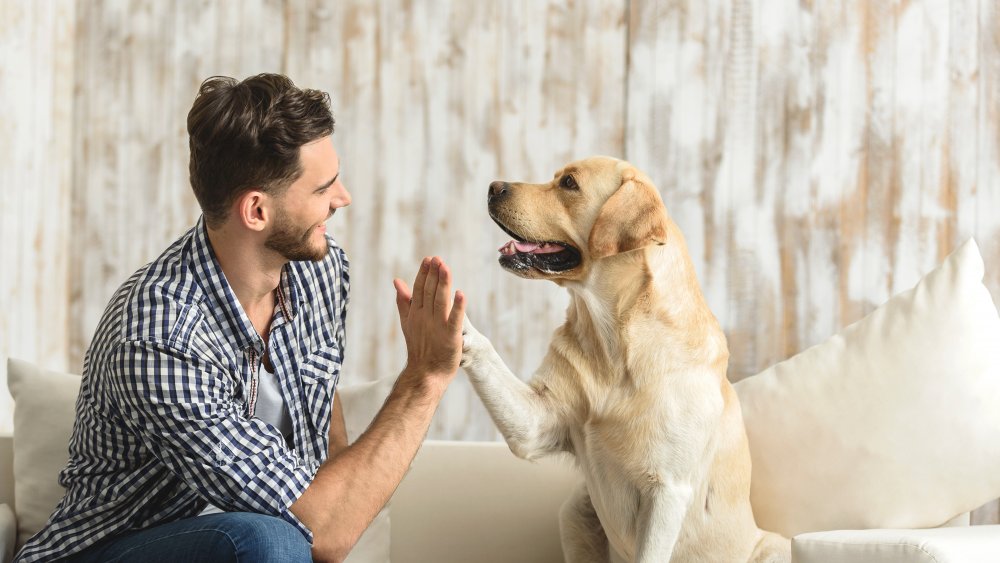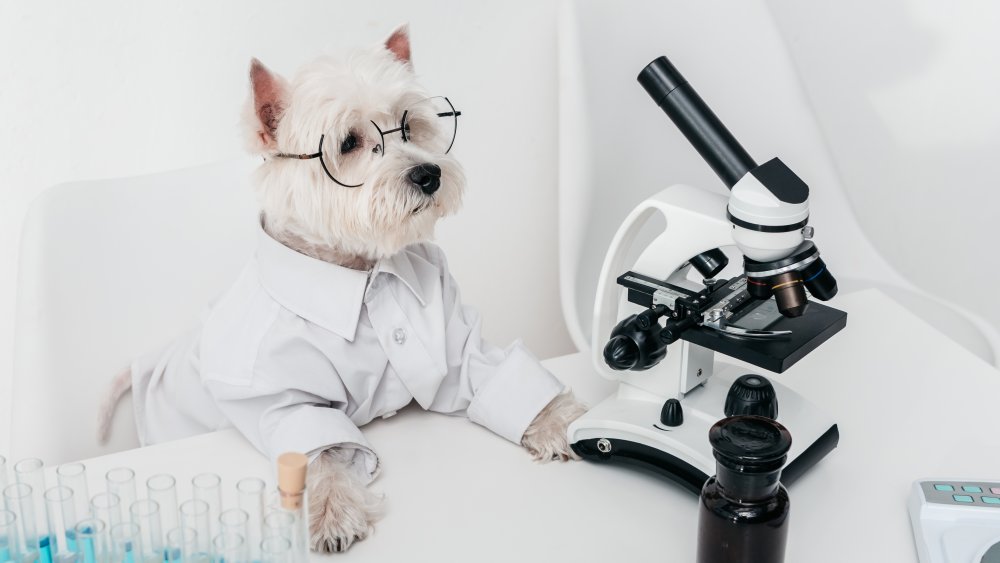Do Humans Share DNA With Dogs?
Dogs: Children love them, many former presidents adored them, and Dwayne "The Rock" Johnson saves them from certain death with his muscular eyebrows. They (dogs, not Dwayne Johnson's eyebrows) help people hunt, fight crime, find bombs, solve mysteries, and will even chew off your rotten toe when you have undiagnosed diabetes, per ABC. Rest assured that no human has ever loved another human enough to sink their teeth into a diseased foot. After thousands of years of living together in domesticated bliss, dogs feel like honorary humans, the difference being that dogs often treat people more humanely than other humans do. The bond feels so natural, you might wonder how much humans and dogs have in common on a genetic level.
Dogs are people, too
It probably won't come as a surprise that dogs and humans have a lot of genetic overlap. After all, about 60 percent of human "genes have a recognizable counterpart in the banana genome," according to How Stuff Works. Within that 60 percent, 40 percent of the proteins encoded are identical. And bananas aren't even animals. Seattle Pi writes that humans and dogs share about 84 percent of their DNA. Presumably that number is far higher for canines like McGruff the Crime Dog. But that's just the nature of living things. There are far more interesting genetic connections between man and man's best friend.
According to Phys.org, the gut microbes living human and canine stomachs have similar genetic make-ups, making dogs a potentially better reference point for nutrition studies. Human DNA might also help explain the special bond between people and pooches. As Live Science details, a study of more than 85,000 Swedish twins indicates that "genetics [are] slightly more predictive of dog ownership in adulthood than environment," though the specific genetic underpinnings were unclear. To paraphrase Queen, humans were born to love dogs with every single beat of their hearts.

